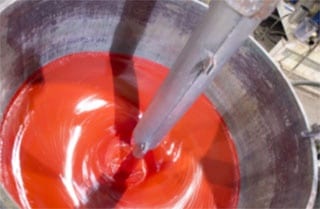At Aexcel, we know the manufactured products that benefit from soft-feel coatings. The right coating can have a substantial impact on a consumer’s perception of a product. The luxurious finish soft-feel coatings provide could help your product line stand out from competitors.
Shipping: Questions to Anticipate When Ordering
Posted on Dec 15, 2021 11:00:00 AM by Aexcel
We have seen a lot in our 50+ years in the paint and coatings industry. We have dealt with hundreds of (or more!) shipping and receiving issues, timeframe challenges, storage requirements, and product damage situations. We have experience with a wide variety of unique customer needs.
It is essential to think ahead about shipping requirements and constraints when you place your order. Our team has provided questions to consider in your ordering and receiving process.
Aexcel Goes Above & Beyond for Customers
Posted on Jun 8, 2021 10:25:44 AM by Aexcel
Aexcel Goes Above & Beyond for Customers
In a private label or toll manufacturing relationship, the true value is about more than price. A partner that goes above and beyond—providing quality products, on-time delivery, immediate customer service, technical expertise, etc.—is worth much more than one who does the bare minimum. Below, we highlight just how committed Aexcel Corp. is to satisfying the custom coating and paint needs of customers.
MMA vs. Thermoplastics for Pavement Marking
Posted on Mar 26, 2021 8:58:41 AM by Aexcel
MMA vs. Thermoplastics for Pavement Marking
Highly trafficked highways, roads, intersections, dedicated bike lanes and paths require durable lines to guide the flow of traffic, which cannot be achieved with traditional waterbased paint. Due to the high cost of maintenance, state and local agencies have looked for other options. Methyl methacrylate (MMA) and thermoplastics have both become popular for painting lines and markings on paved surfaces.
A Brief Guide to Waterborne Traffic Marking Paint
Posted on Dec 10, 2020 11:51:12 AM by Aexcel
A Brief Guide to Waterborne Traffic Marking Paint
Traffic markings—the yellow and white lines on roadways, parking lots, and other similar areas—are critical to keeping motorists, bicyclists, and pedestrians safe. Today, these markings are typically made from paint, which, after undergoing numerous modernizations and improvements, offers high visibility and durability. Both of these qualities are essential to an effective roadway safety improvement material.
Traffic marking paint is available in many variations. Below, we provide an overview of waterborne traffic marking paint, including what it is and key considerations when using it.
A Brief Guide to Solvent-Based Traffic Marking Paint
Posted on Nov 24, 2020 3:15:00 PM by Aexcel
A Brief Guide to Solvent-Based Traffic Marking Paint
At Aexcel, we manufacture traffic marking paint for use on roadways and in parking lots from Alaska to Florida and every area in-between. Our paint products are engineered for superior performance in demanding applications, ensuring the formation of visible and durable traffic markings. Our two traffic marking paint offerings are waterborne and solvent-based products. Both serve as effective roadway safety improvement materials when applied and dried properly. Below, we discuss some of the key surface and temperature considerations to keep in mind when using our solvent-based paints.
Benefits of Custom Coating Formulations
Posted on Jan 6, 2020 11:17:07 AM by Aexcel
In the manufacturing industry, creating and delivering a new product necessitates considerable strategizing when it comes to shape, size, weight, materials, manufacturing processes, and aesthetics. As the global manufacturing supply chain gets increasingly competitive, planning out every small component of the overall product design is crucial for those that want to stay lean and competitive.
Industrial Coating Suppliers: Key Considerations
Posted on Nov 4, 2019 10:26:38 AM by Aexcel
Key Considerations for Industrial Coating Suppliers
Coatings Failure Analysis: Causes and Process Improvements
Posted on Oct 2, 2019 9:25:36 AM by Aexcel
After investing significant capital into facilities and/or equipment, most business owners commit themselves to preserving their investments. Applying the right protective coating can have a considerable effect on the longevity of the facilities and equipment. However, choosing the right coating requires a critical analysis of the challenges and hazards presented by the substrate’s end use environment and ensuring the coating’s formulation is designed to address these problem areas.
A Guide to Metal Coatings Corp.
Posted on Aug 28, 2019 9:00:00 AM by Aexcel
Coatings protect metal components and objects from damage like corrosion. Metal parts can be vulnerable to a variety of corrosion types, such as:







